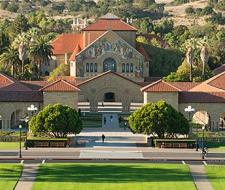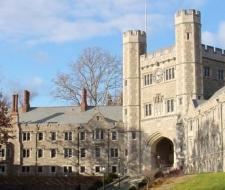3 best universities in Oslo 2024
- Education information
- Advantages of studying in TOP universities in Oslo for foreign students
- The best universities in Oslo – classification of educational institutions
- Specifics of studying in TOP universities in Oslo
- How to apply to private universities in Oslo for foreign students
- Universities in Oslo ranking
- Cost and fees to study in universities in Oslo for foreign students
-
 #25 World University Rankings - Masters In Marketing
#25 World University Rankings - Masters In Marketing NorwayOsloCurrently watching: 6from 8550.00 € / yearApply with documents
NorwayOsloCurrently watching: 6from 8550.00 € / yearApply with documents -
 Apply with documents
Apply with documents -
 from 203.00 $ / yearApply with documents
from 203.00 $ / yearApply with documents
-
 from 2020.00 € / 15 lessonsApply with documents
from 2020.00 € / 15 lessonsApply with documents -
 from 53000.00 $ / yearApply with documents
from 53000.00 $ / yearApply with documents -
 #2 among U.S. national universities
#2 among U.S. national universities USABoston, MassachusettsCurrently watching: 10Apply with documents
USABoston, MassachusettsCurrently watching: 10Apply with documents -
 from 28000.00 $ / semesterApply with documents
from 28000.00 $ / semesterApply with documents -
 Top-50 best Marketing programs in the world
Top-50 best Marketing programs in the world SpainBarcelonaCurrently watching: 7from 4900.00 € / semesterApply with documents
SpainBarcelonaCurrently watching: 7from 4900.00 € / semesterApply with documents -
 from 27000.00 $ / semesterApply with documents
from 27000.00 $ / semesterApply with documents -
 from 41320.00 $ / yearApply with documents
from 41320.00 $ / yearApply with documents -
 from 51870.00 $ / yearApply with documents
from 51870.00 $ / yearApply with documents
Alternative destinations
Education information
Norway is a Scandinavian country in Northern Europe, whose mainland territory includes the western and northernmost part of the Scandinavian Peninsula. Unlike many Western European countries, there are no ancient medieval universities in Norway. The oldest university in Oslo was founded in 1811. It was based on the progressive model of the University of Berlin at that time, created at the initiative of the largest reformer of higher education Friedrich Wilhelm Humboldt. Such a dynamic start partly explains the innovative nature of the development of higher education in the country.
Norway is a constitutional monarchy. University status can be assigned to an educational institution only with the consent of the reigning monarch of Norway.
Oslo is the capital and most populous city of Norway, as well as the economic and governmental centre of the country. It is home to the largest number of universities in Norway, and some of the higher education institutions are leaders in teaching and research activities. Due to the presence of Nobel Prize-winning teachers, Oslo is one of the best options for studying abroad.
Oslo is an important centre of maritime industry and maritime trade in Europe. Other major industries supporting the local economy are: banking, shipping, retail and insurance. The best companies with local offices are: Norsk Hydro, Petroleum Geo-Services, Siemens, H&M, Schenker, Philip Morris, Agri Foods, Opera Software, Ernst & Young. As for internship opportunities, the foreign students will be able to apply to local companies in any field where they want to gain practical experience.
Advantages of studying in TOP universities in Oslo for foreign students
- Innovation of Master's programs
Norwegian universities pay great attention to the most pressing problems and interdisciplinary research: from marine architecture and Arctic urban planning to global journalism and geotechnics. It is no coincidence that Norway ranks 19th in the world according to the Global Innovation Index. Specialties in the oil industry, renewable energy, sustainable management, and information technology are particularly popular. Global warming, Arctic and Scandinavian studies are popular in the country.
- Modern campuses and facilities
In terms of one university student, Norway spends almost 22,000 USD per year and in this indicator it is second only to Sweden and Luxembourg in Europe. The universities in Oslo are equipped with libraries, laboratories, leisure and sports centres.
- Free doctoral studies
The foreign students can get a PhD at a public university in Oslo for free. Other educational programs for the foreign students from March 2023 are paid.
The best universities in Oslo – classification of educational institutions
All universities in Oslo are divided into three types:
- Universities
The status of research universities in Oslo, which are exclusively state-owned, implies that a wide range of fundamental sciences (natural, humanitarian, social) can be studied at the university. Since 2005, in order to obtain university status, at least 5 master's and 4 PhD programs must be accredited at the university.
- Profile universities
Specialized universities provide studying of specialists of a certain profile. Here the foreign students can study architecture, design, business, management, music, sports sciences, theology or economics at a high level. They are well suited for those who want to fully immerse themselves in the environment of their future profession.
- University colleges
Colleges were created by combining smaller technical and vocational schools. They are, as a rule, small educational institutions where specialized programs in applied sciences are widely presented. The main purpose of creating colleges is to prepare nurses, teachers, educators, engineers and managers.

What firstly should be considered when choosing a university? Subjects, employer value, percentage of employment in the first year after graduation?
It depends on the student - everyone determines the most important criteria for himself. I would advise you to take several rankings and compare them with each other, plus take into account the cost of the course, the location of the university and its scale, the percentage of graduates' employment. See where graduates continue their studies or where they go to work.
Specifics of studying in TOP universities in Oslo
University colleges in Oslo are equivalent in status to higher education institutions and include both elements of vocational schools and university functions. Colleges have two-year diploma programs in Norwegian, after which the graduates can transfer to a university and continue their studies from the third year. The colleges also offer bachelor's and master's degree programs in applied sciences and arts (teaching, IT, nursing, accounting, logic, acting, journalism, etc.).
Undergraduate studies at university colleges in Oslo are conducted mainly in Norwegian, but the students can find up to 20 master's degree programs in English.
State profile universities in Oslo are extremely in demand among applicants and it is difficult to enter them not only for a foreign student, but also for a local student. The competition for universities such as the Norwegian School of Economics, the Norwegian School of Sports Sciences and the School of Architecture and Design in Oslo ranges from 4.5 to 9.5 people per place.
Also, there are specialized private universities: two theological universities and the Norwegian School of Management (one of the largest universities in Norway — more than 19 thousand students). If the program is not funded by the state, the tuition fee can reach USD 23,727 per year of study, depending on the type of program.
How to apply to private universities in Oslo for foreign students
Requirements vary from university to university in Oslo, but the standard package of documents includes:
- Completed online application;
- Official documents on education, certified by apostille and notarized translated into English or Norwegian: school certificate and all diplomas of higher education together with appendices;
- Motivation letter;
- Resume;
- Recommendation letters.
Additionally, an academic essay, a research plan and other documents may be required.
As education in Norwegian schools lasts 12 years, the foreign students can enrol in a bachelor's degree at the universities in Oslo after completing the first year of a domestic university. To apply for a master's degree, you need to have a bachelor's degree.
Undergraduate studies are conducted in Norwegian, before starting their studies, foreign students take a language proficiency exam or complete a year's preparation. Some master's programs are available in English, for admission it is necessary to have an international certificate in English. Minimum points for enrolment: TOEFL — 90, IELTS — 6.5, PTE Academic — 62.
The deadline for submitting bachelor's degree documents for international students is February 1. Acceptance of documents for master's programs begins on October 1 and ends on December 1.
Universities in Oslo ranking
- The University of Oslo is famous not only for the fact that it is the oldest higher education institution in Norway, which is why locals call it simply "university". In various rankings, it appears as one of the best universities in the Scandinavian countries. Media studies are considered to be the strongest discipline at the university.
- BI Norwegian Business School, established in 1943 in Norway, is today one of the largest in Europe. This is the only private institution among the top 5 universities in the country. BI offers both MBA, Bachelor's and doctoral programs. Applicants to the bachelor's degree can study in Norwegian, at the other stages of education is conducted exclusively in English. Employers all over the world highly value BI graduates. The best areas are sociology and management.
- Oslo Metropolitan University
- Oslo National Academy of the Arts
- Oslo School of Architecture and Design.
Cost and fees to study in universities in Oslo for foreign students
Studying at the universities in Oslo is free, the students pay only a registration fee of 76 USD. However, life in Norway is not cheap. In order to provide yourself with everything you need, you will need to spend about 10,000 Norwegian kroner every month.
The student pays for a dorm room or a rented apartment on his own. Renting a dorm room costs NOK 2,500-5,000 per month, and renting an apartment costs NOK 4,500-7,200. Monthly expenses for food and transport will amount to 3,000 and 600 kroner, respectively. The cost of educational materials for one semester of study is 5,000 kroner.
Top 15 best universities in Switzerland 2024
| 1 | Glion Institute of Higher Education Switzerland |
| 2 | Les Roches International School Montana |
| 3 | César Ritz Colleges Switzerland |
| 4 | IHTTI School of Hotel Management |
| 5 | Ecole Hoteliere de Lausanne |
| 6 | Geneva Business School |
| 7 | EU Business School Montreux |
| 8 | HIM Hotel Institute Montreux |
| 9 | Swiss Hotel Management School |
| 10 | Webster University Geneva |
| 11 | Business and Hotel Management School |
| 12 | Luzern IMI |
| 13 | Swiss Hotel Management School (SHMS) Caux |
| 14 | International University in Geneva |
| 15 | Culinary Arts Academy Switzerland |
Top 10 best universities in Netherlands 2024
Top 35 best universities and colleges in Canada 2024
| 1 | University of Toronto |
| 2 | McGill University |
| 3 | University of British Columbia |
| 4 | University of Alberta |
| 5 | Simon Fraser University |
| 6 | Montreal University |
| 7 | University of Windsor |
| 8 | York University |
| 9 | University of Guelph |
| 10 | McMaster University |
| 11 | University of Manitoba |
| 12 | University of Waterloo |
| 13 | Royal Roads University |
| 14 | Vancouver Film School |
| 15 | Kwantlen Polytechnic University |
| 16 | University of Calgary |
| 17 | Dalhousie University |
| 18 | Fanshawe College |
| 19 | University of Ottawa |
| 20 | Laval University |
| 21 | Sheridan College |
| 22 | University of Regina |
| 23 | Brock University |
| 24 | Thompson Rivers University |
| 25 | Humber College |
| 26 | Vancouver Island University |
| 27 | Mohawk College |
| 28 | Centennial College Toronto |
| 29 | Niagara College |
| 30 | Capilano University |
| 31 | Seneca College |
| 32 | Algoma University |
| 33 | Saint Clair College |
| 34 | Douglas College |
| 35 | LaSalle College |



